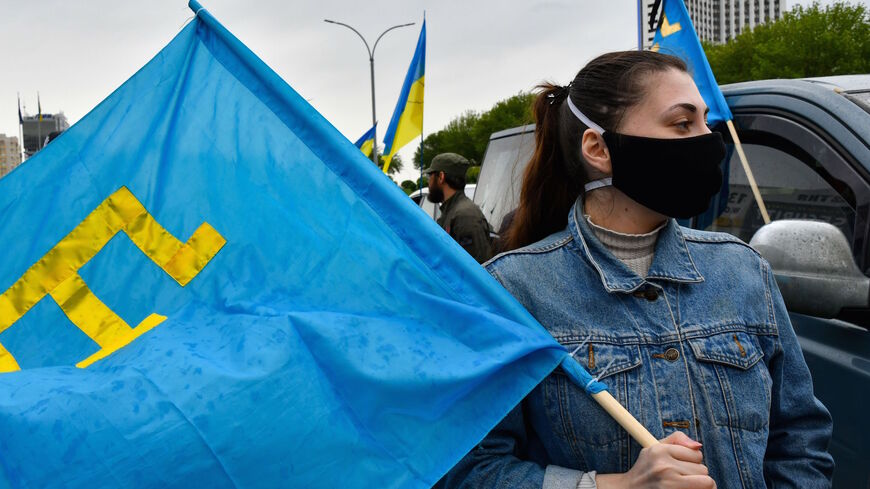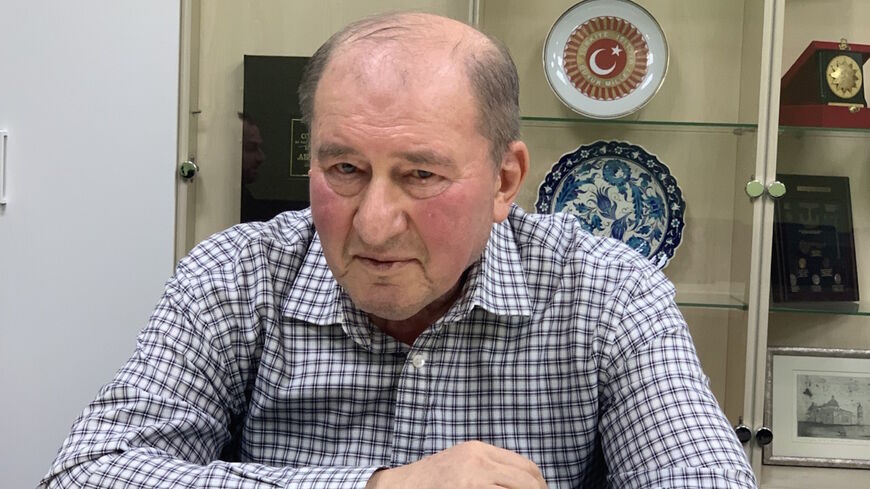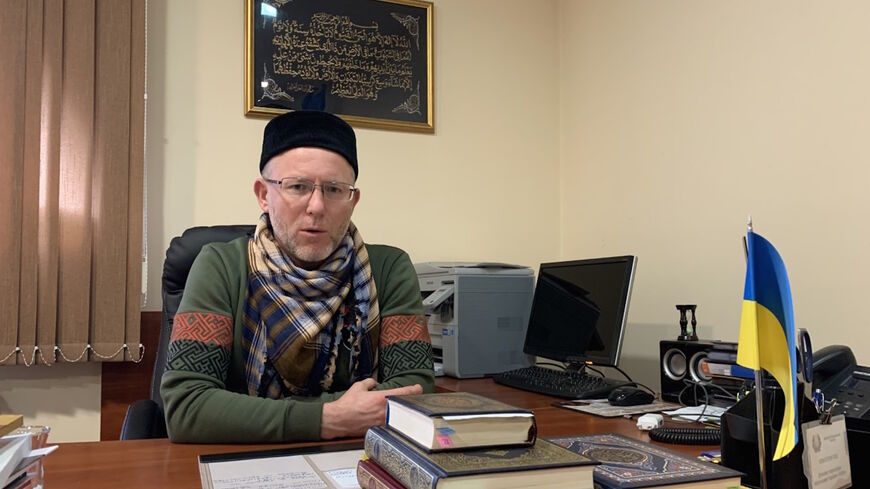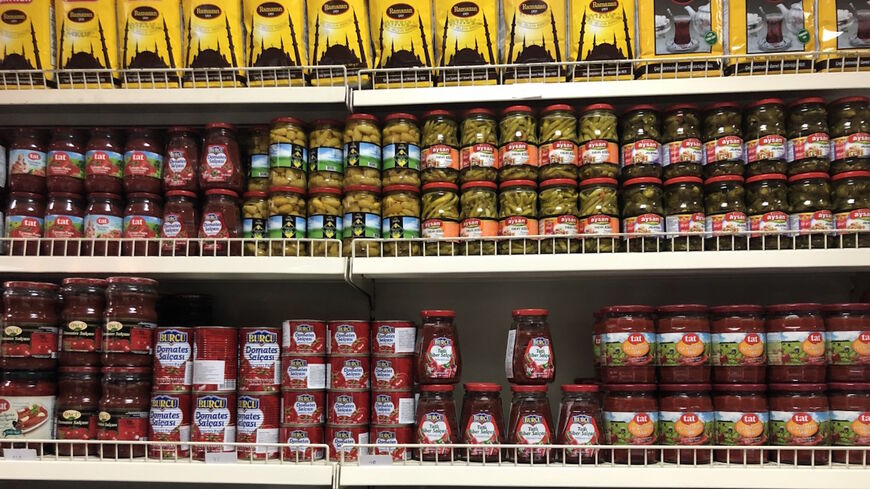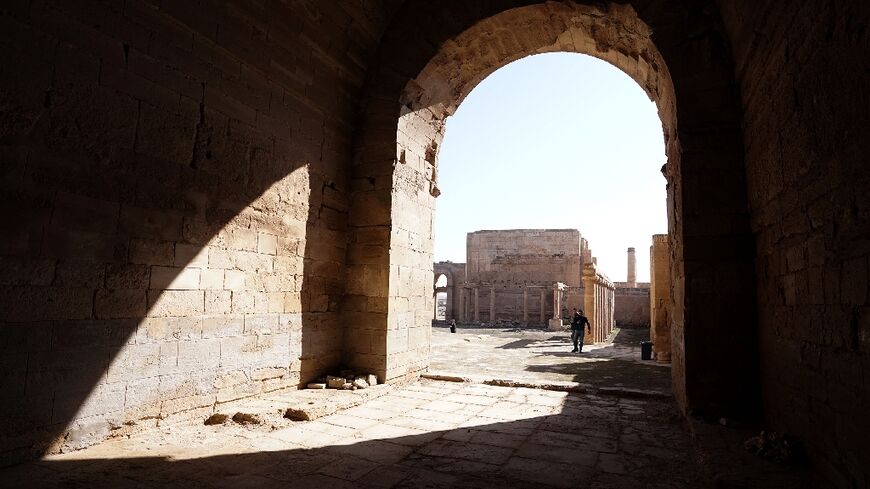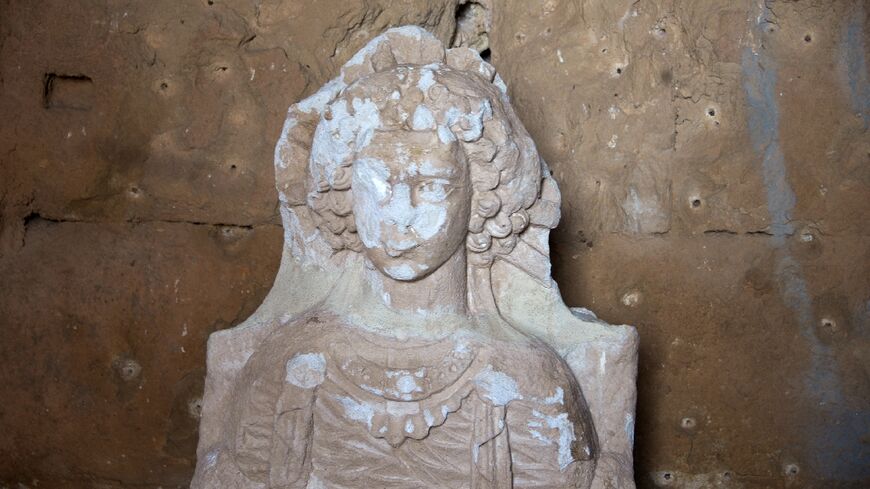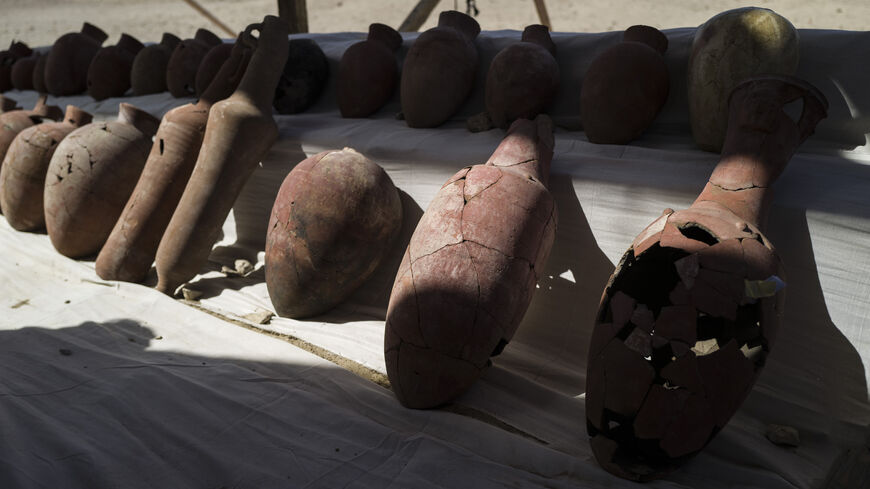Opinion: Ukraine will survive — but the West should be ashamed
The war has arrived. Russia has invaded Ukraine. If the West had not looked away in 2014, this catastrophe might have been averted, writes DW's Roman Goncharenko.

Ukrainians will never willingly succumb to Russian occupation
Thursday, February 24, 2022. This is a day we will never forget.
The day on which an insane Russian leader decided to launch a major war against Ukraine. The day that Ukrainians and their friends all over the world had prepared themselves for, all while hoping that it would never come. The day when the Kremlin brought war to Europe.
Many seem surprised today, asking, "How it could come to this?" The answer can be found in these lines by Winston Churchill: "You were given the choice between war and dishonor. You chose dishonor and you will have war."
There is no doubt. Russian troops have invaded Ukraine just as they did around 100 years ago when Ukraine first declared independence. The impact of this monstrous step will send shockwaves around the world.

Some believe that Russia has been preparing for a massive war for years
The fatal mistake of the West
The West bears partial responsibility for these developments.
In 2014, when Russia invaded Ukraine for the first time since the latter gained its independence in 1991, and then annexed Crimea, the West decided on the kind of dishonor that Churchill had spoken about.
The leaders of the US, Germany and other Western powers took both of the Ukrainian government's hands and begged it to not push back. In no instance, they urged, should Russian President Vladimir Putin be "provoked."
Their motivation: One hundred years after the First World War, the West feared another. This was understandable. Yet, it was also a fatal mistake.
West hesitated for too long
Russia became intoxicated with its success in Crimea and perpetuated the war in the eastern Ukrainian region of Donbas. Still, the West hesitated to provide Ukraine with weapons (Germany refused to do so altogether) and shied away from imposing tough retaliatory measures on Moscow.
It was only after the Malaysia Airlines flight MH17 was shot down that targeted sanctions were imposed on certain sectors of the Russian economy. But even these were so restricted and weak that Russia came to the conclusion that it would probably be allowed to continue its actions without facing any serious resistance.
Ukraine also underestimated the degree of madness in the Kremlin and the widespread perception among many in Russia that Ukraine is not really an independent state.
Many Ukrainians lulled themselves into a false sense of security, thinking: "We're neighbors, relatives — Russia will never dare to wage an open war."
Even the government in Kyiv did not break off diplomatic relations with Russia, sending the wrong signals to its Western allies, something along the lines of "it's not that bad, really."

Some Western leaders chose to appease Russia rather than prepare for the worst
Time to help Kiev
In this way, the chance to avoid the war that has now started was wasted. Hoping to appease the aggressor, Western leaders decided to negotiate with Russia. But, throughout human history, this approach has rarely been successful. And it has failed once again — in Ukraine.
Russia has used the income from its oil and gas exports to develop new weapons and prepare an apocalyptic war, not only against Ukraine but against the entire West.
There were plenty of warnings. It all happened out in the open. The Kremlin and its propagandists never hid their intentions. But the West preferred to keep its eyes shut. Western politicians should be blushing with shame.

The Russian troop build-up happened openly
It is now time for the West to rectify its past mistakes and to help Ukraine by any and all possible means. There will be battles, there will be bloodshed, there might be an occupation and a long partisan war. Ukraine will lose many of its best sons and daughters.
But there is no doubt that Ukraine will survive. Ukrainians will never resign themselves to being back on Moscow's leash. Those times are over. They are not coming back.
And Russia? Moscow's chosen path of aggression against Ukraine and the whole of the Western world will end in disaster, sooner or later. Maybe then Russia will have a chance to start over. For now, all those who love freedom are Ukrainians.
This opinion piece was originally written in German.





